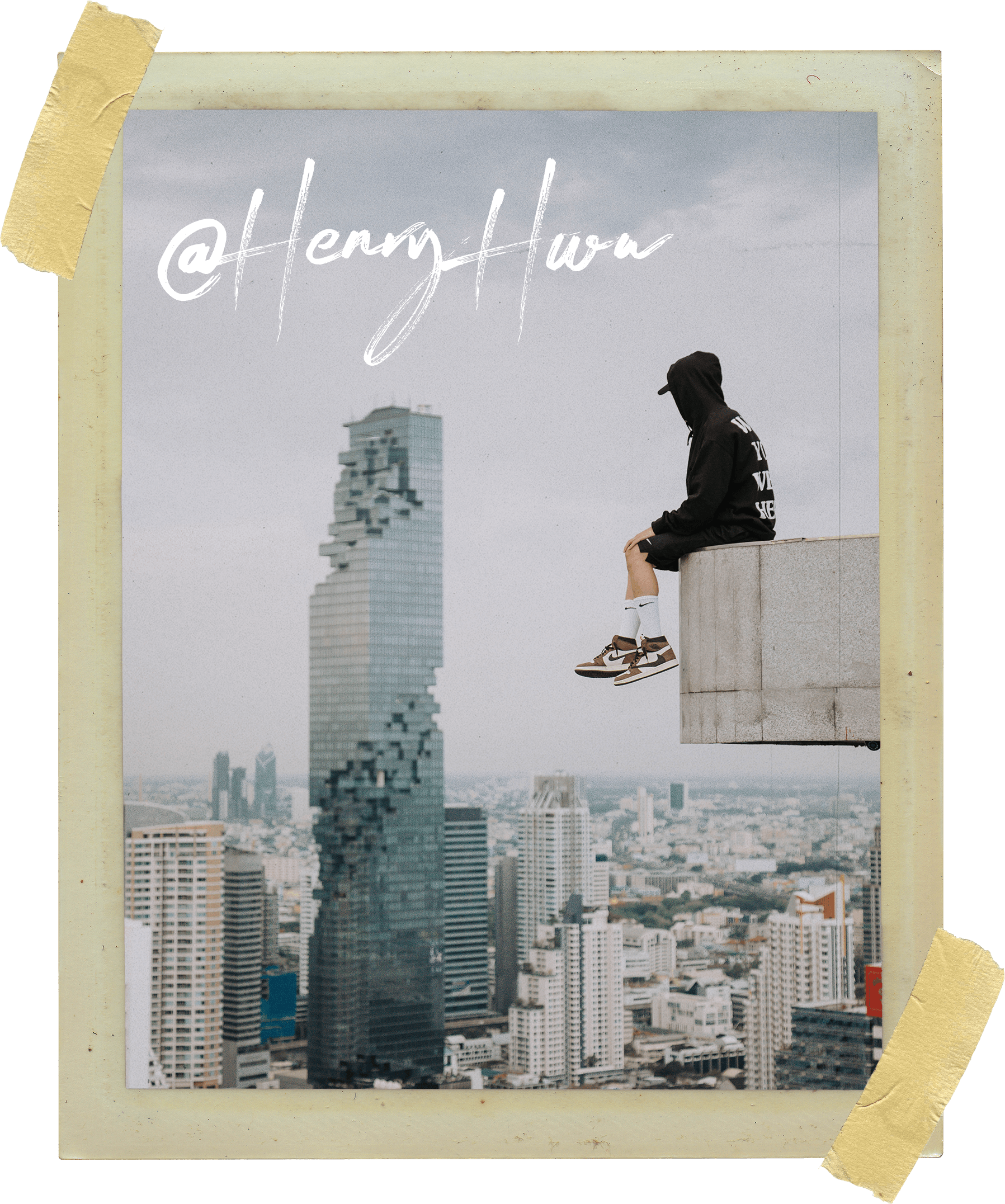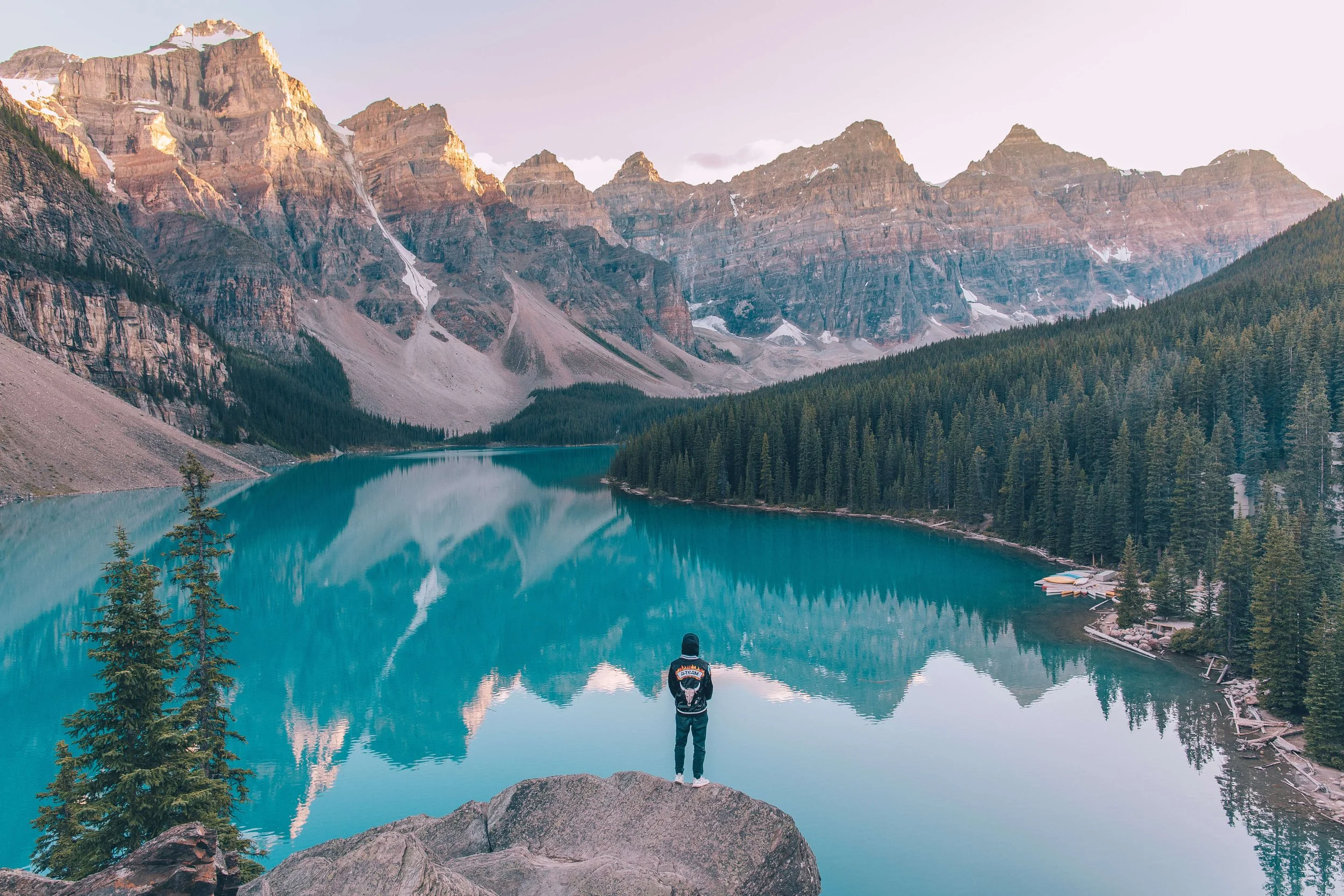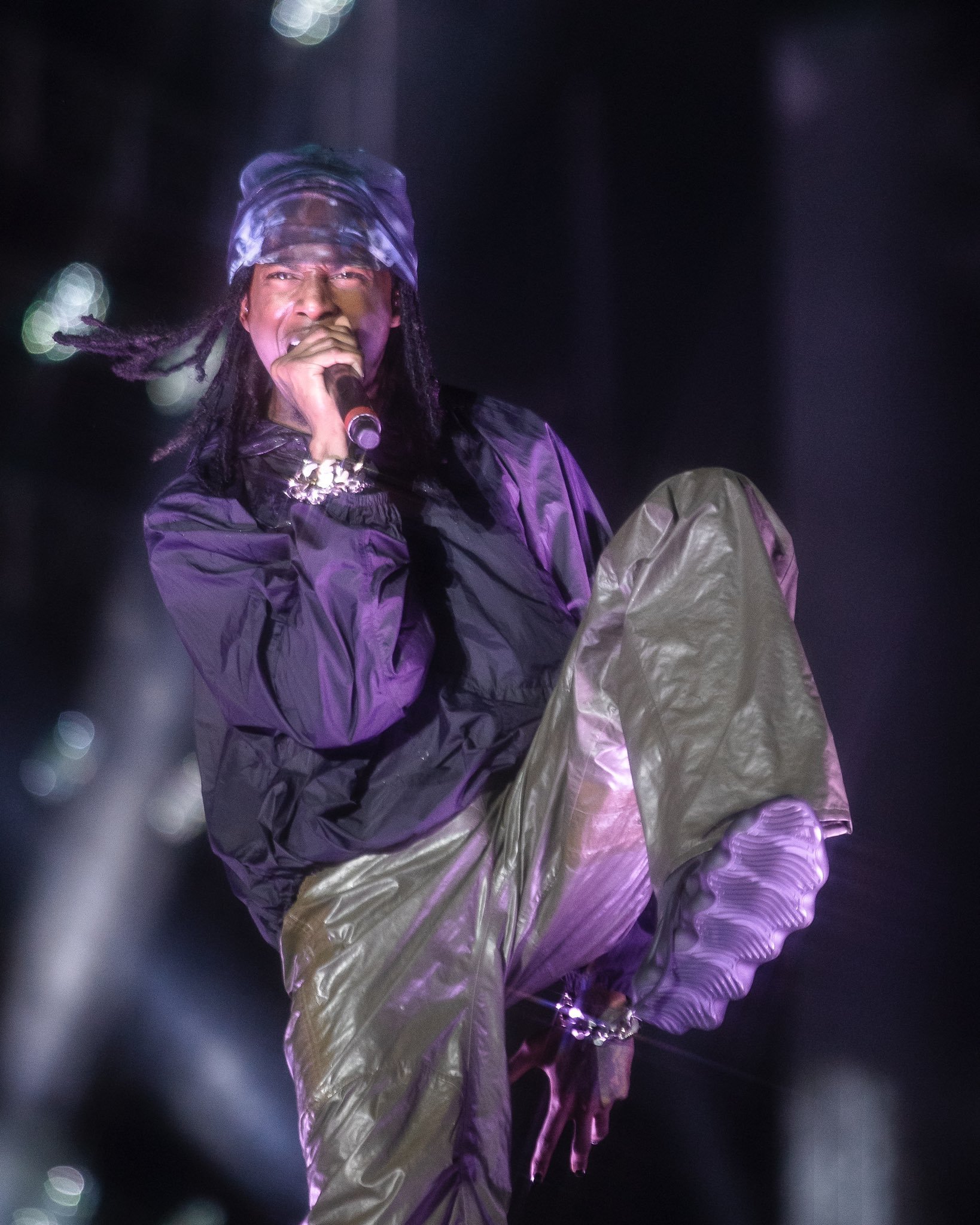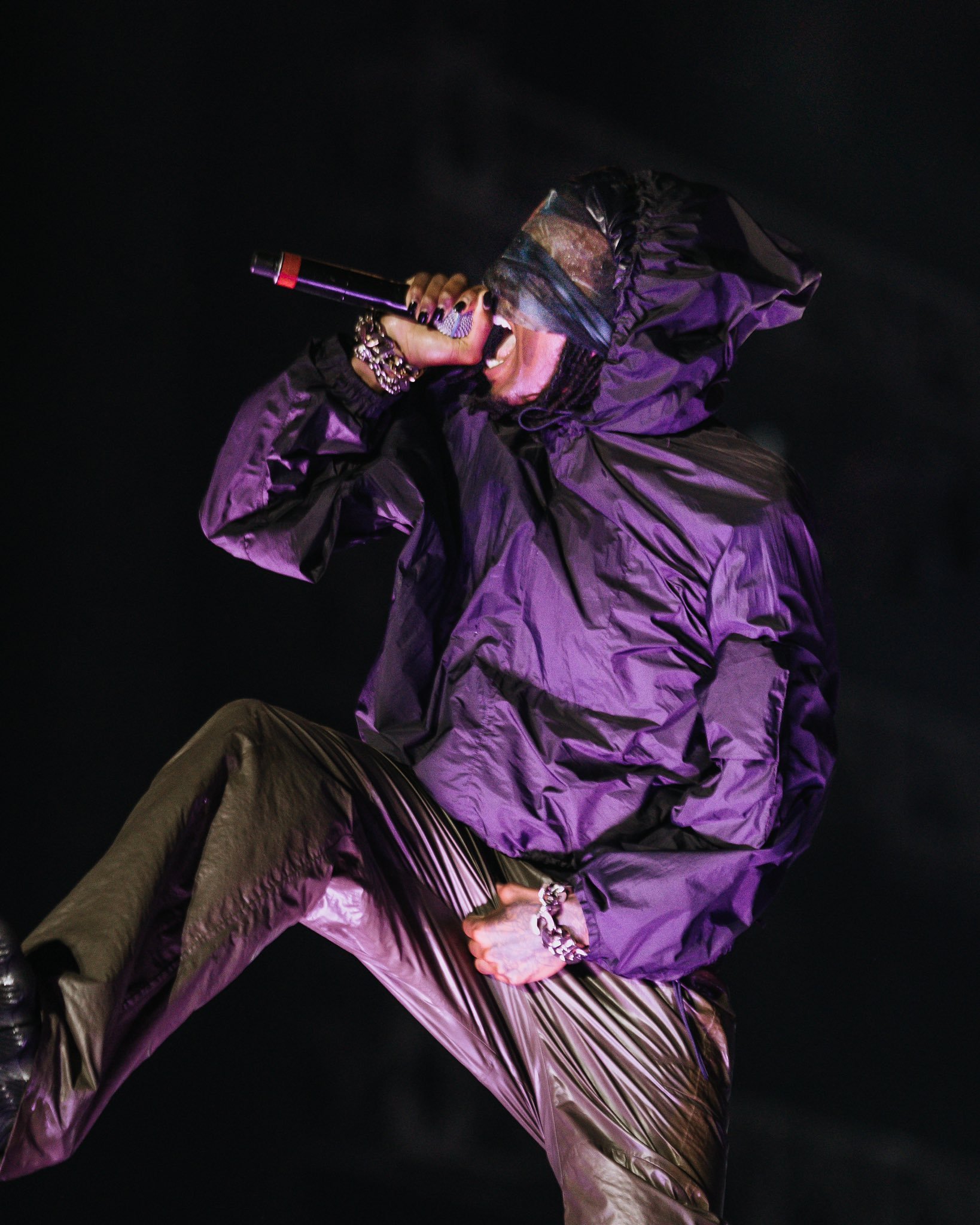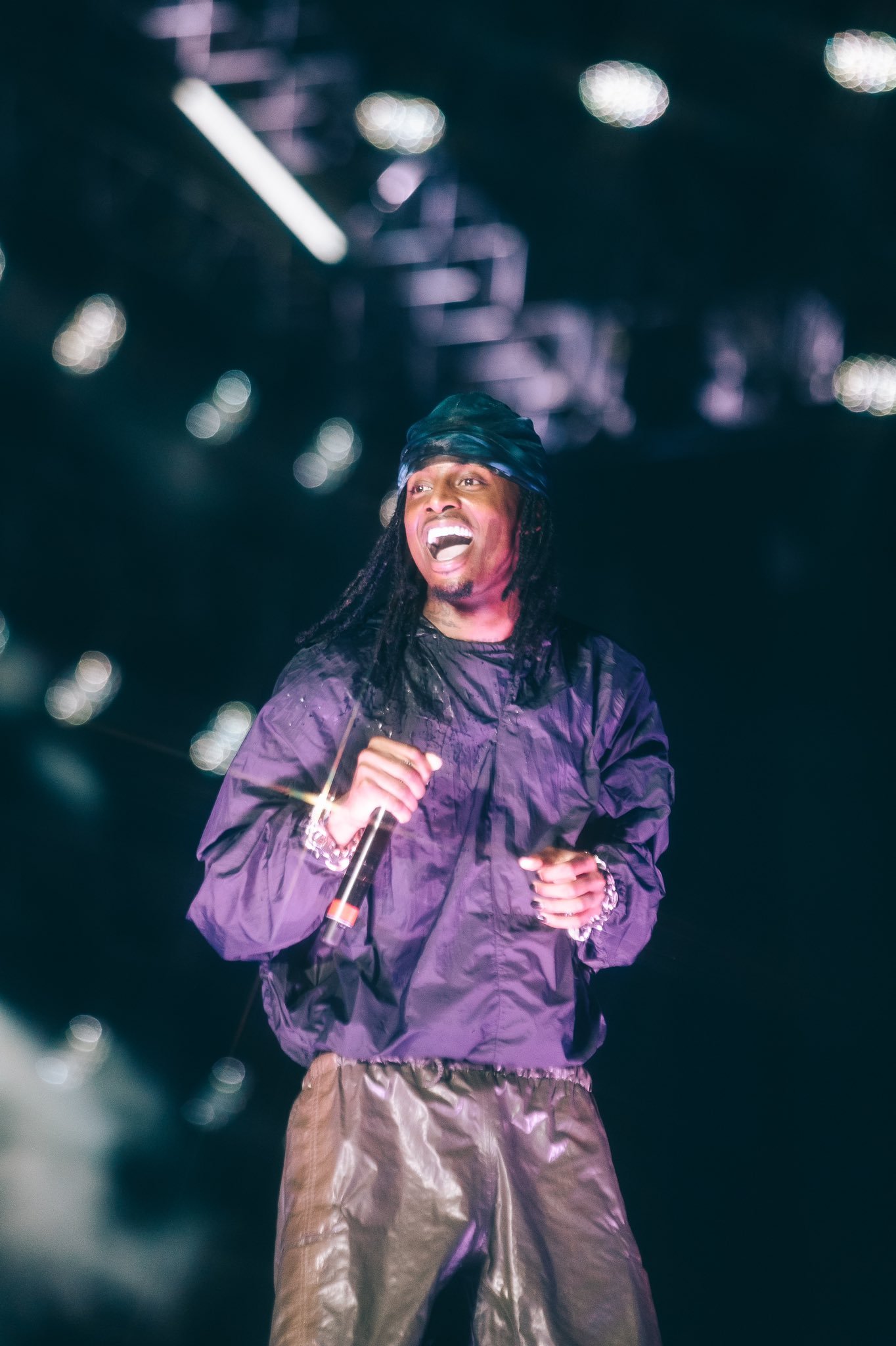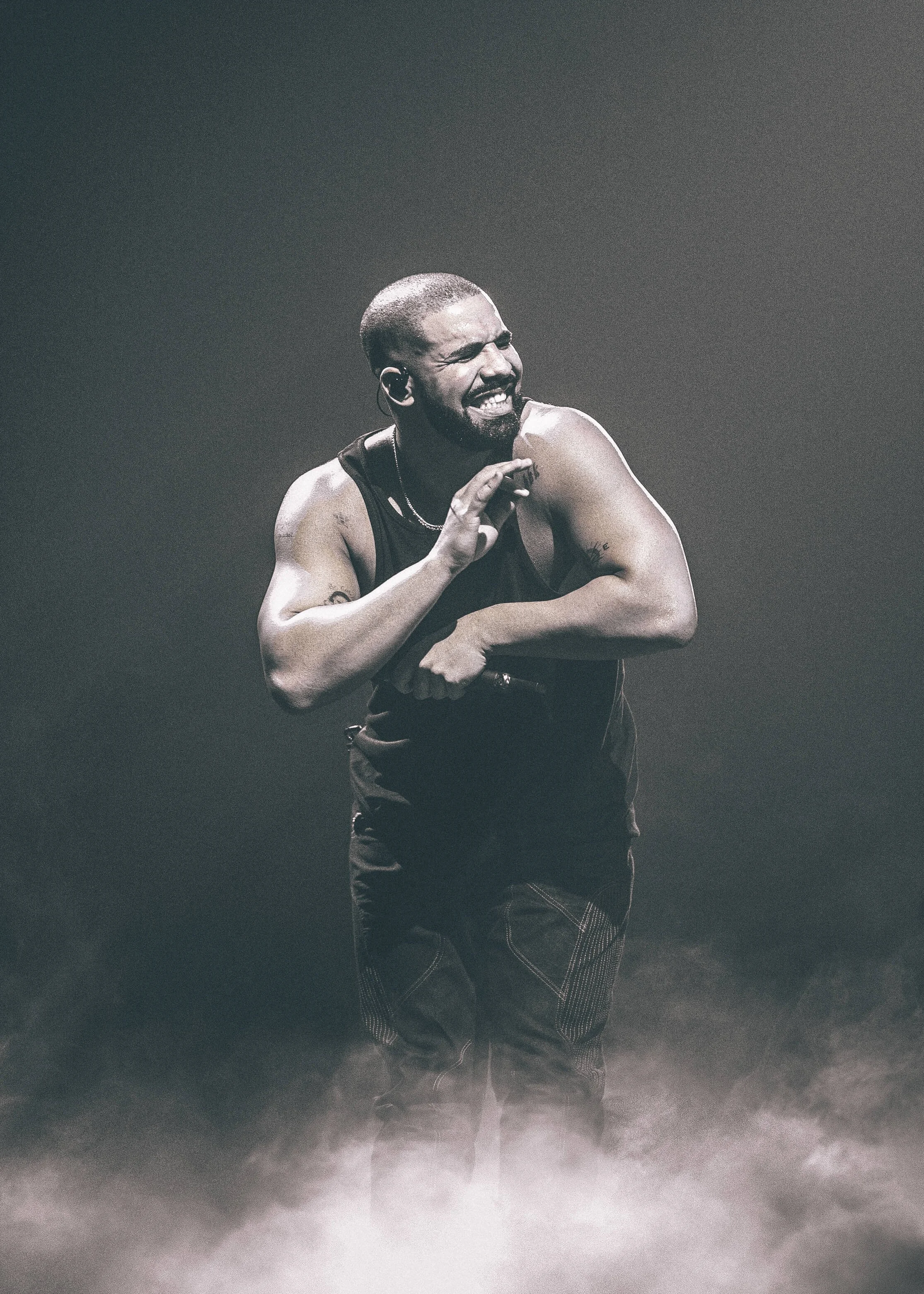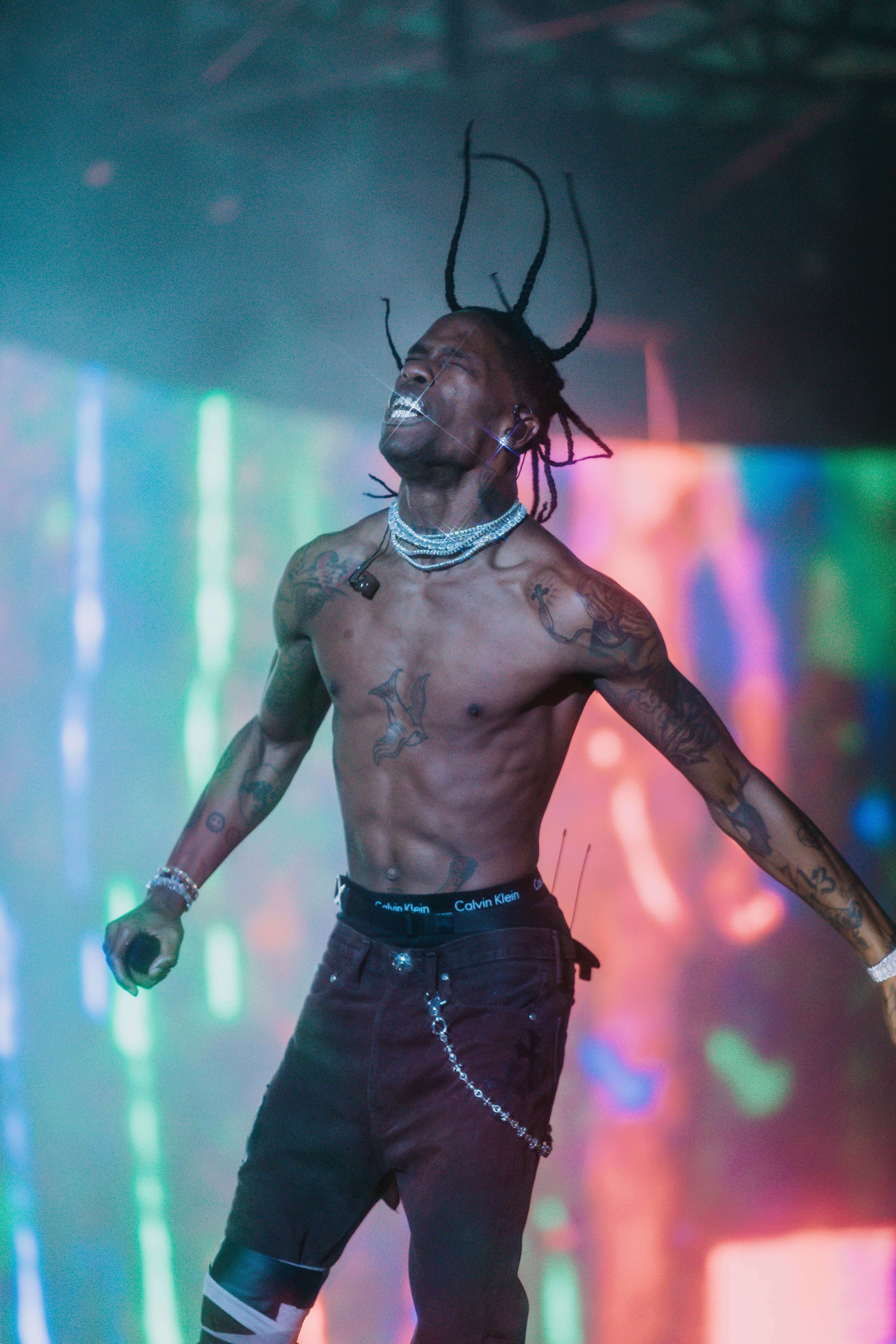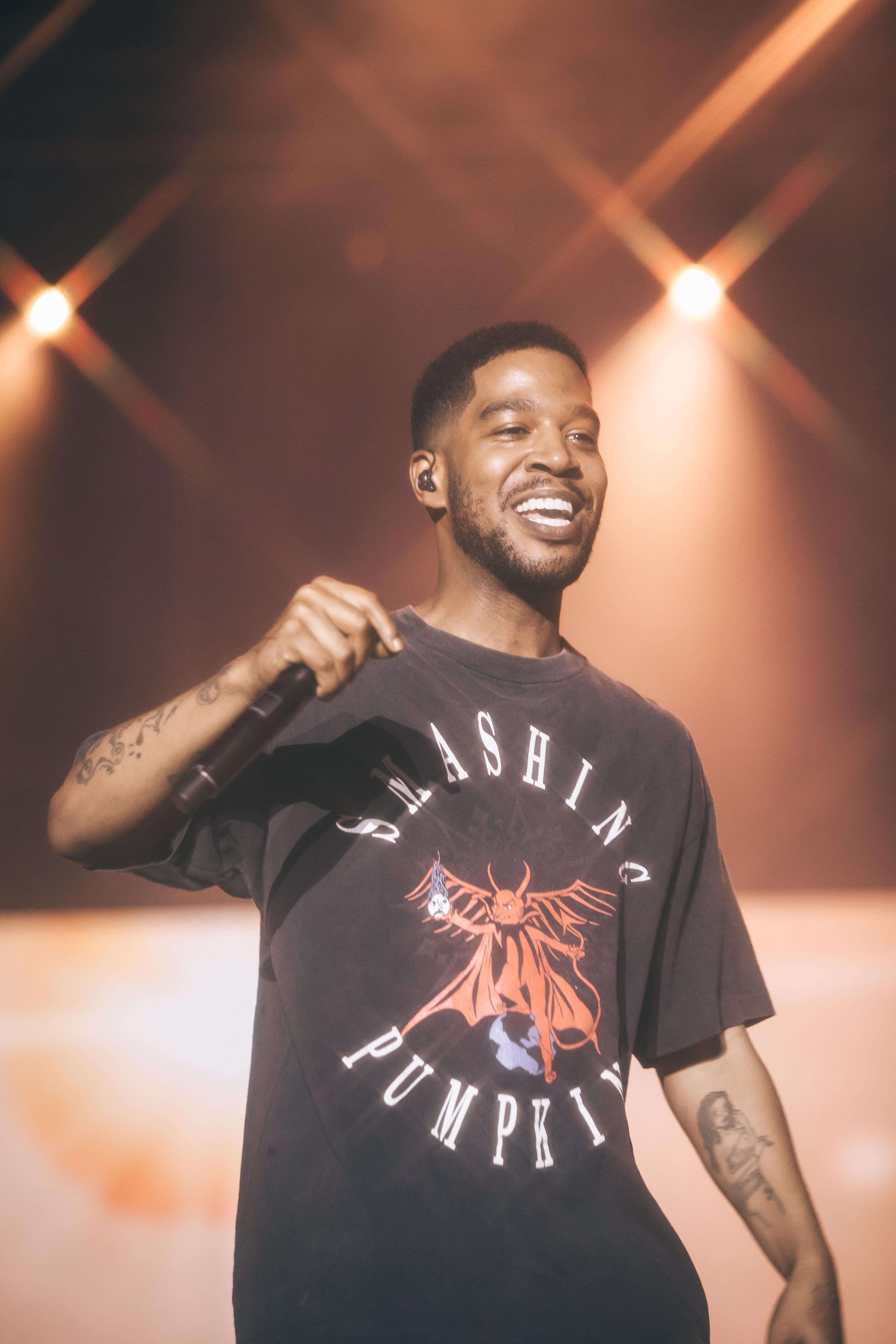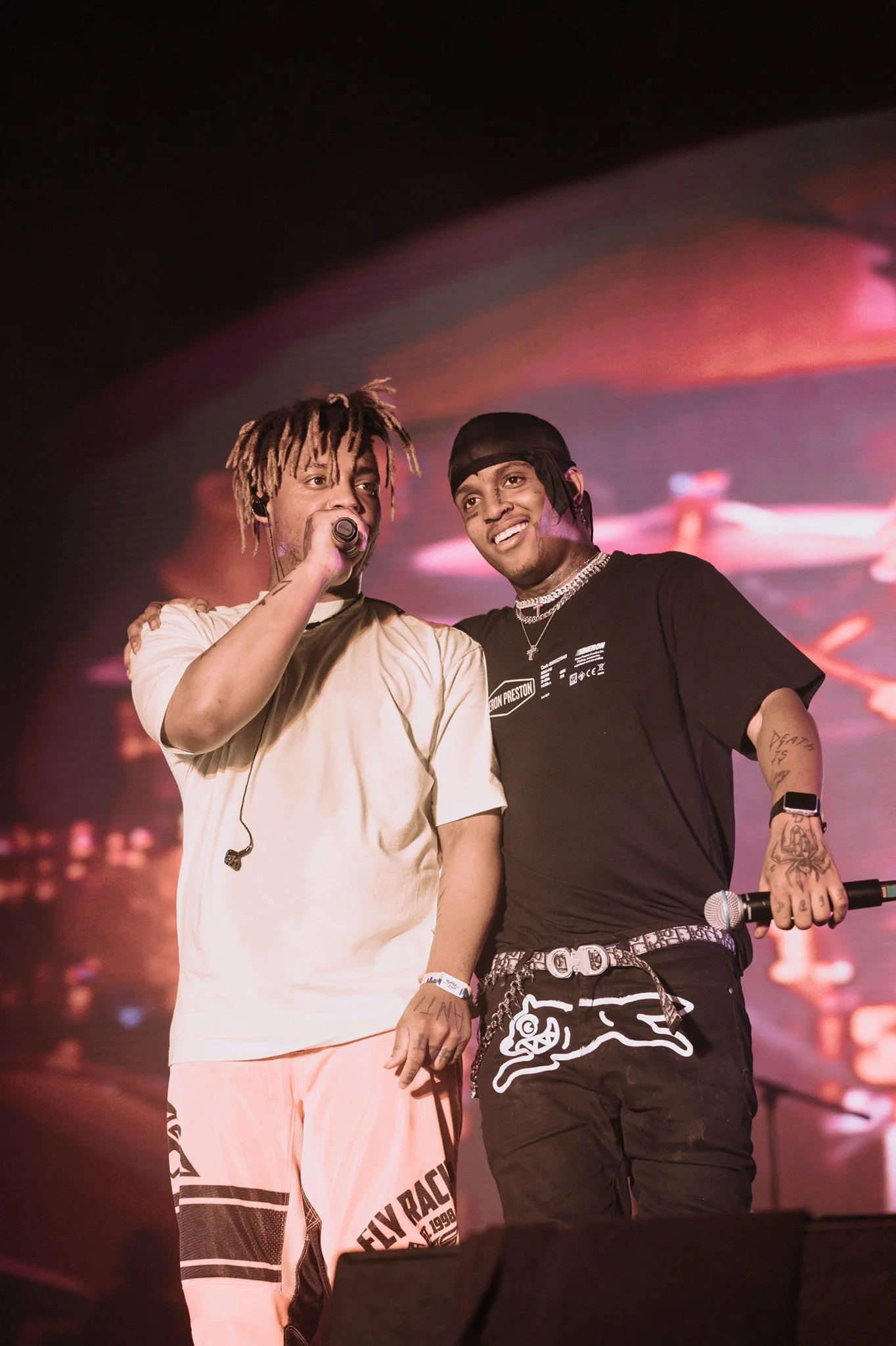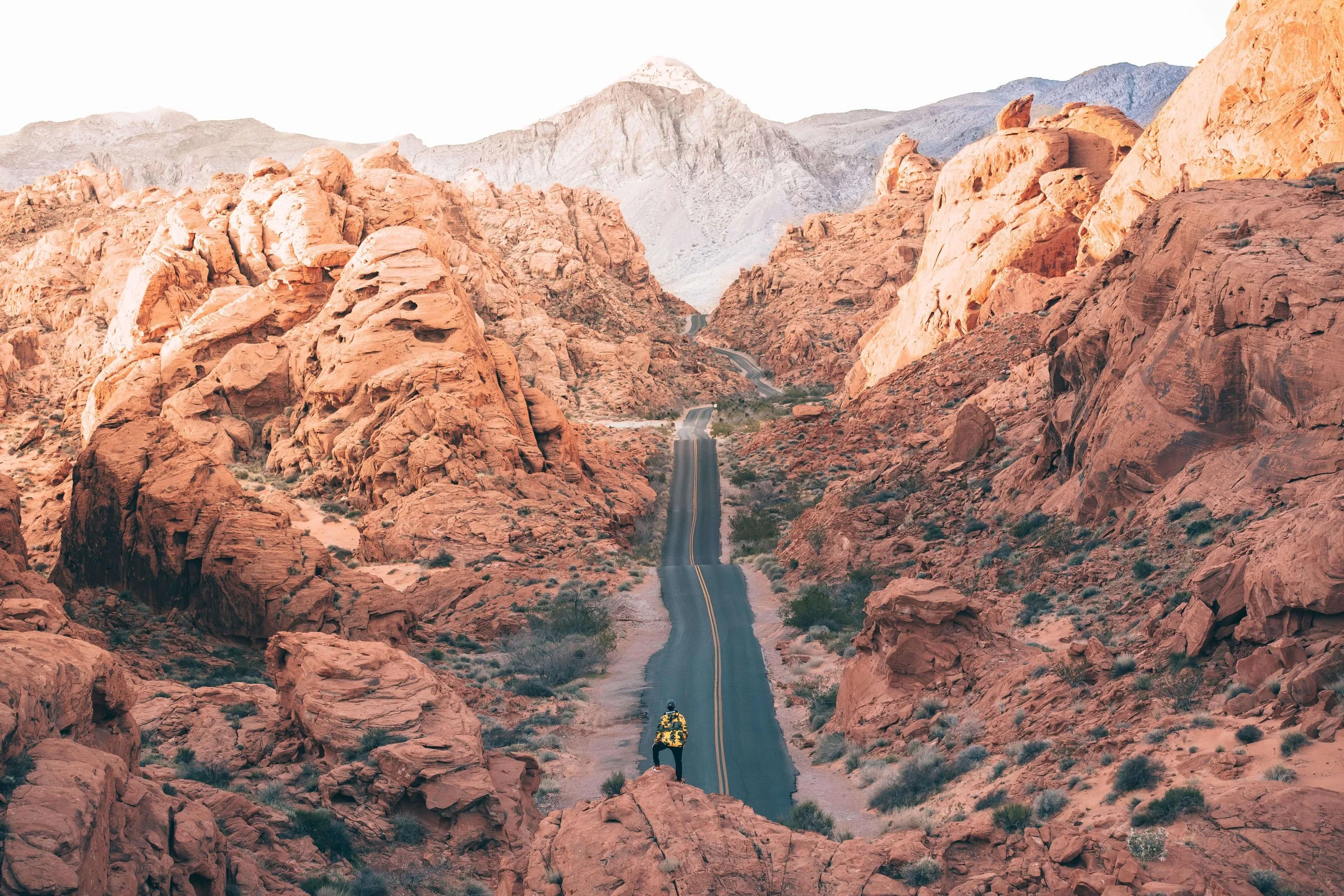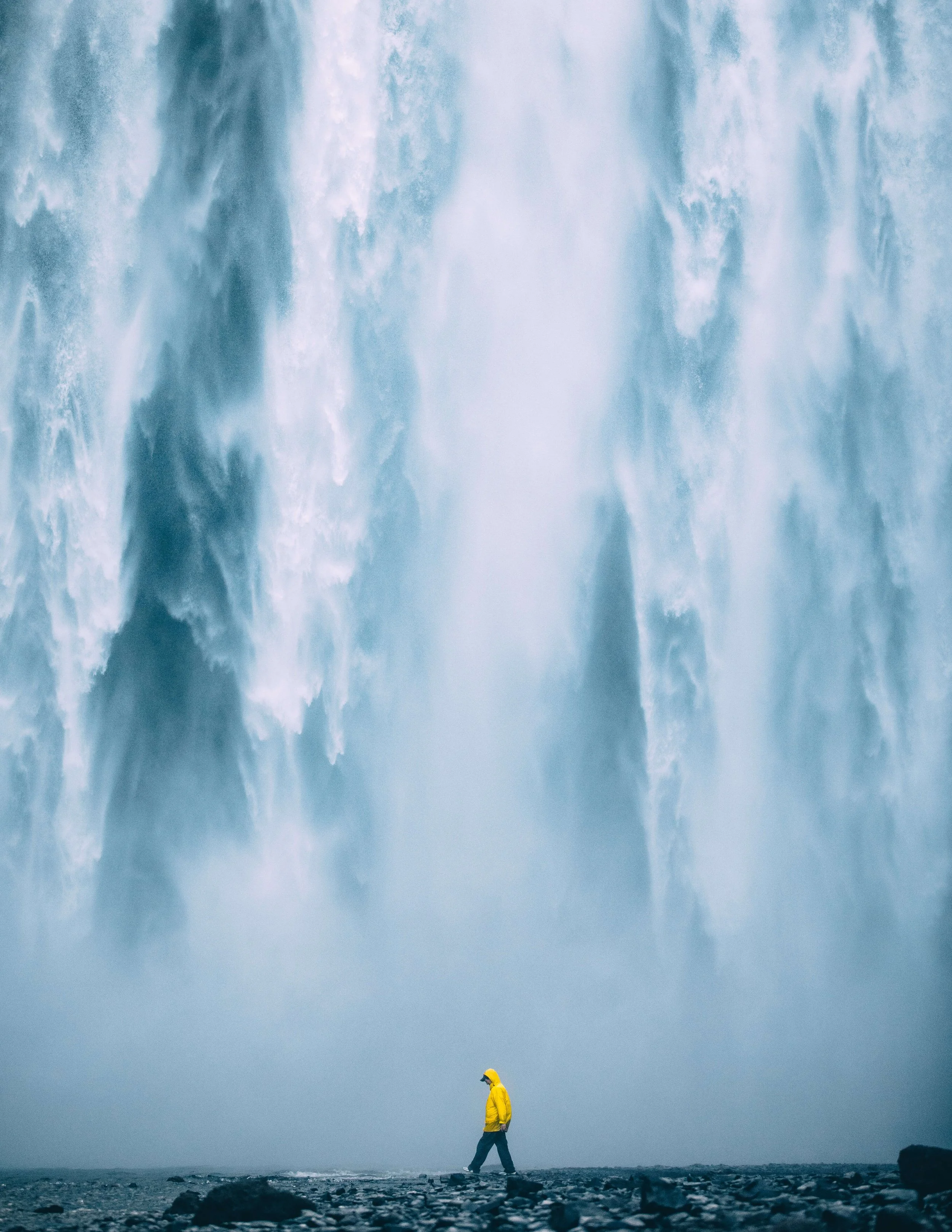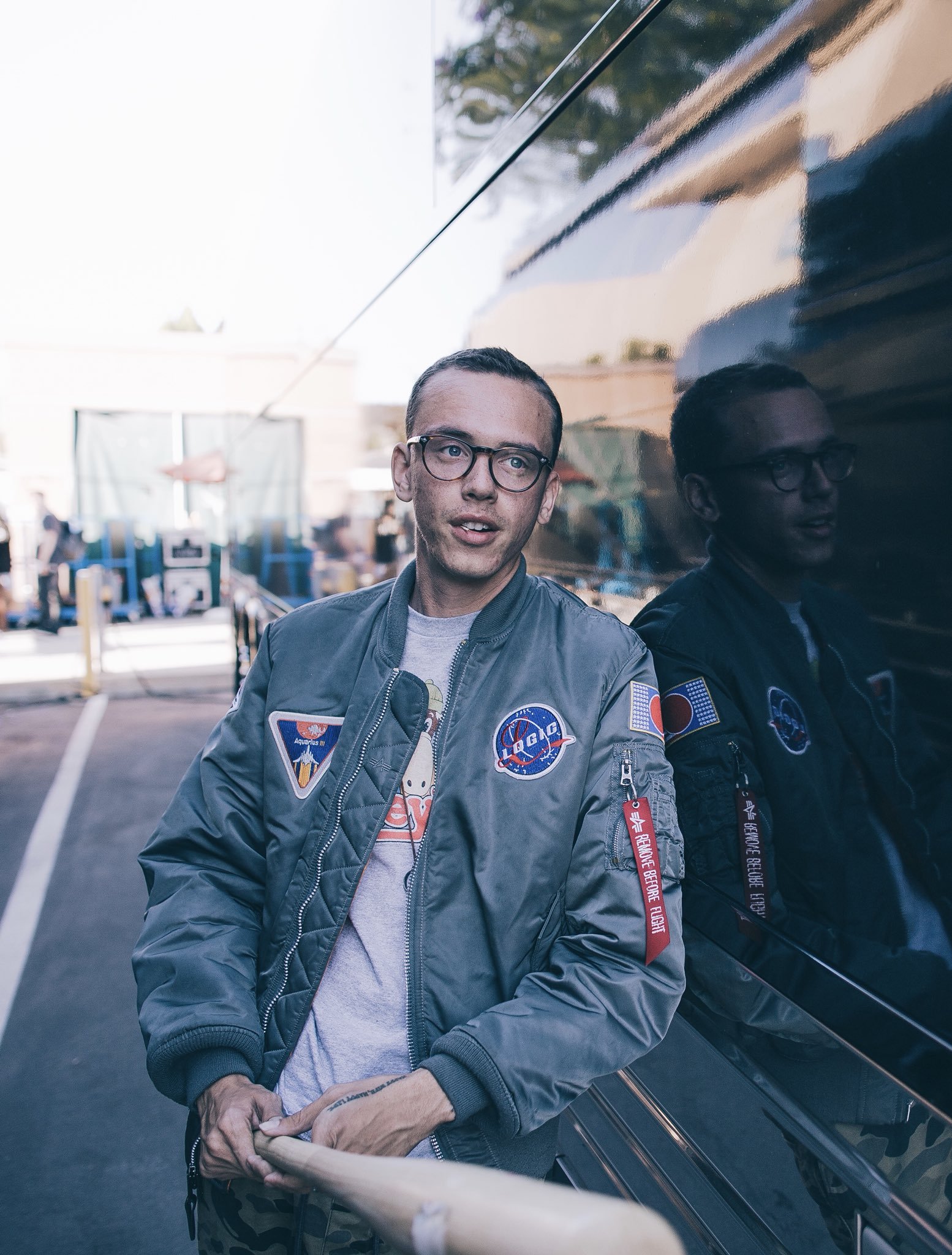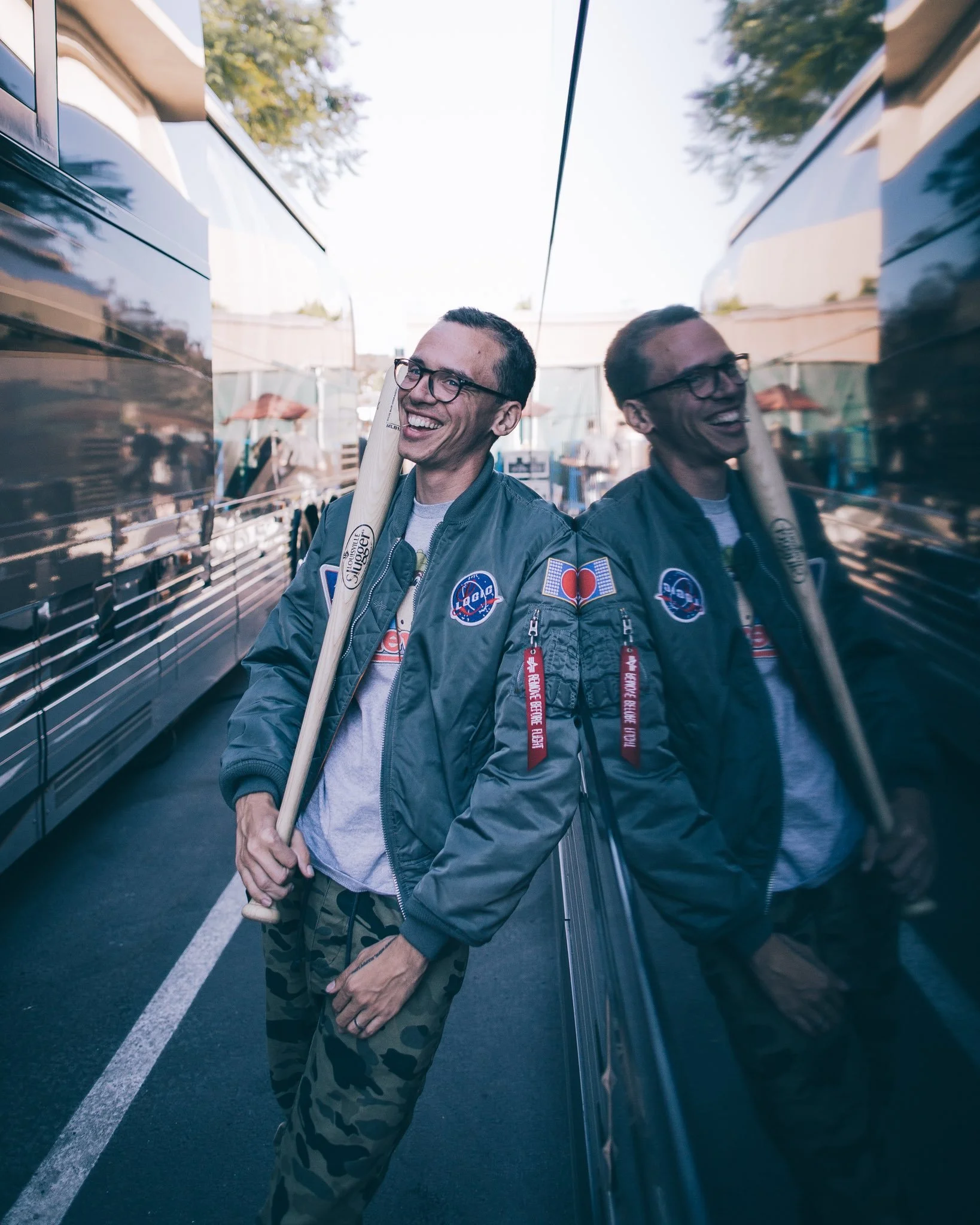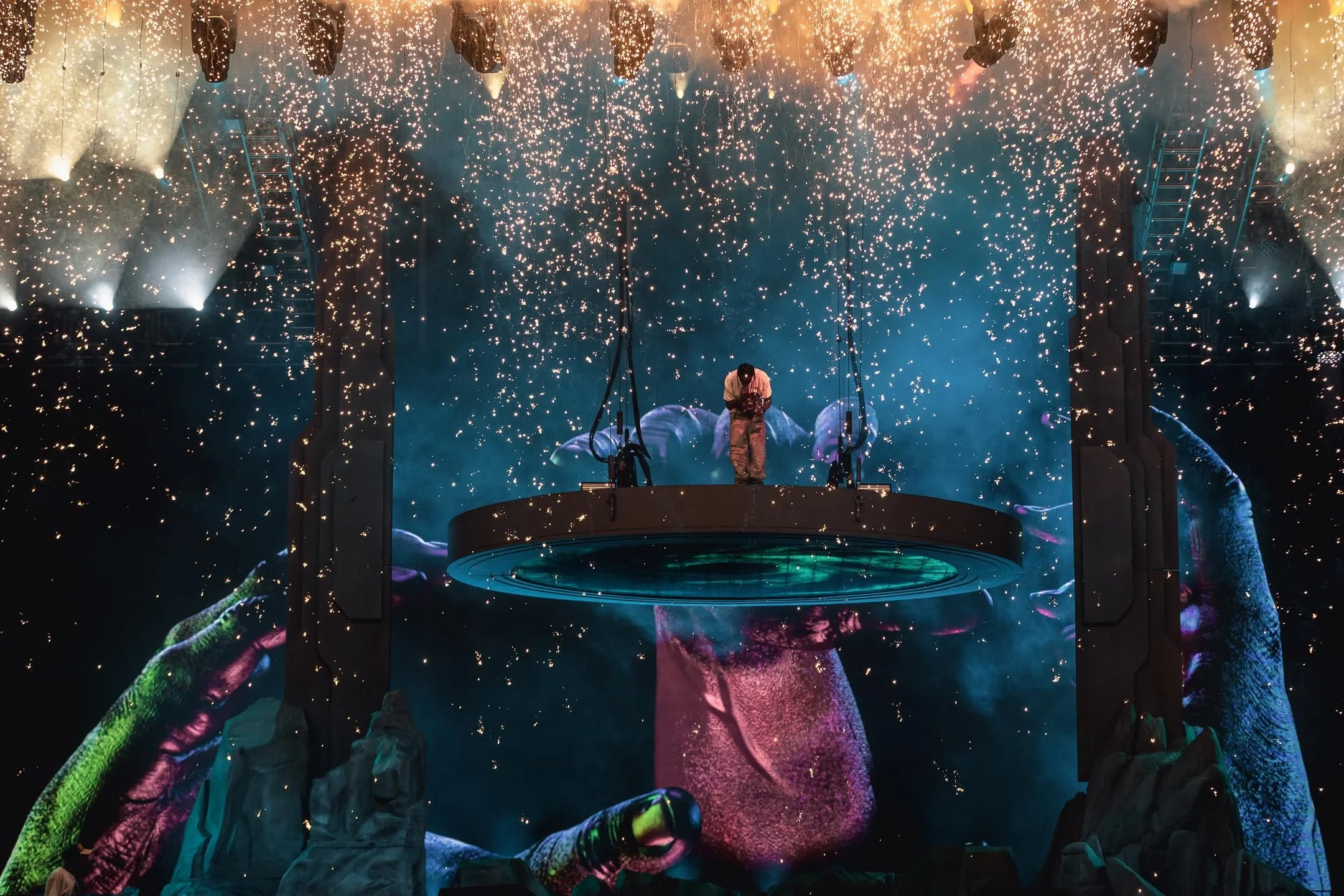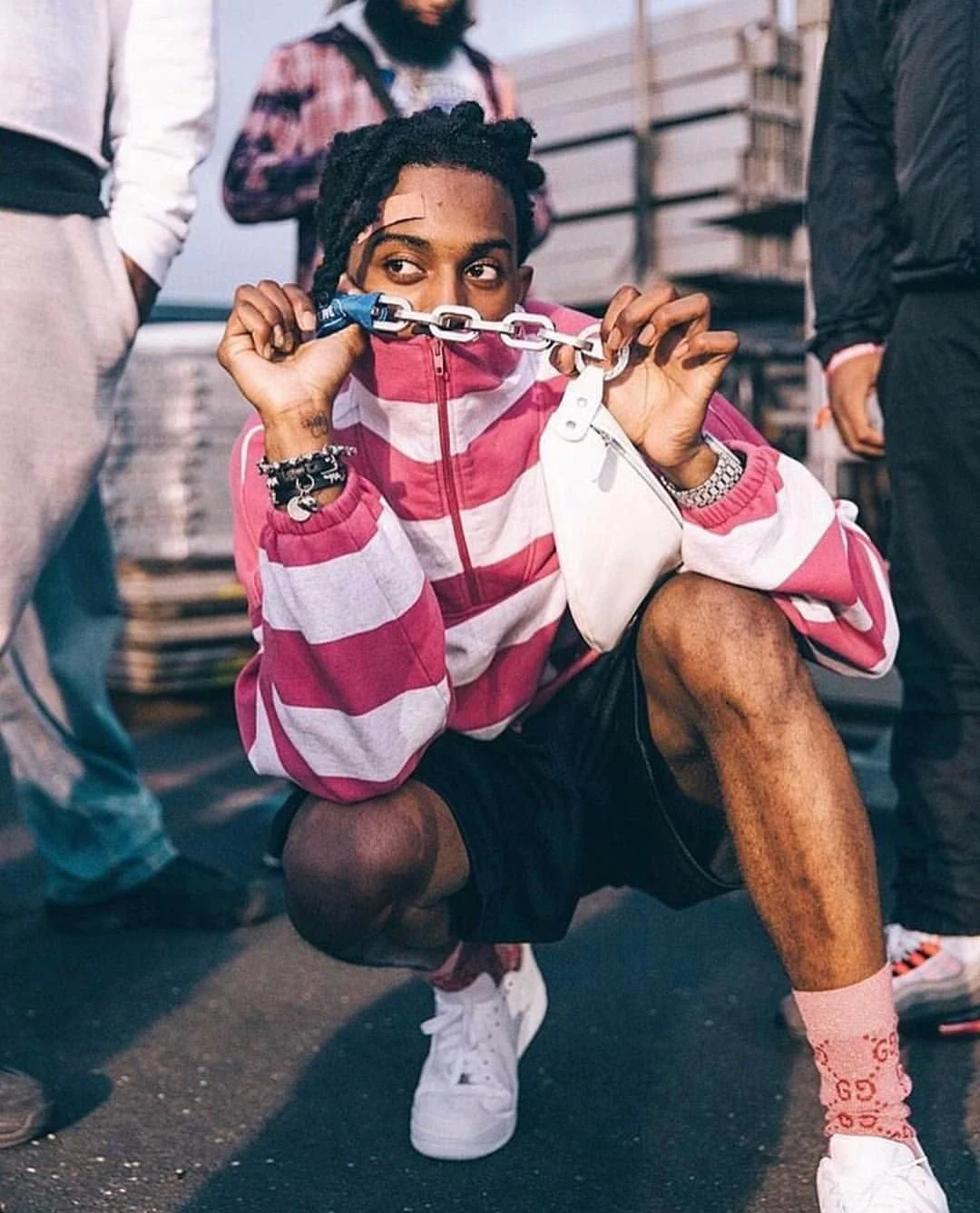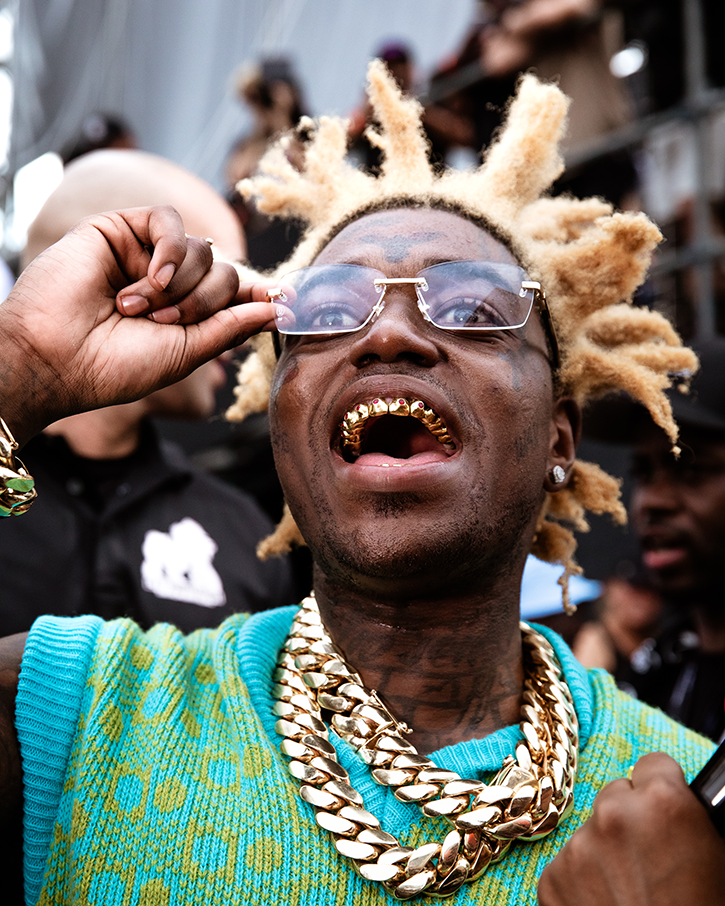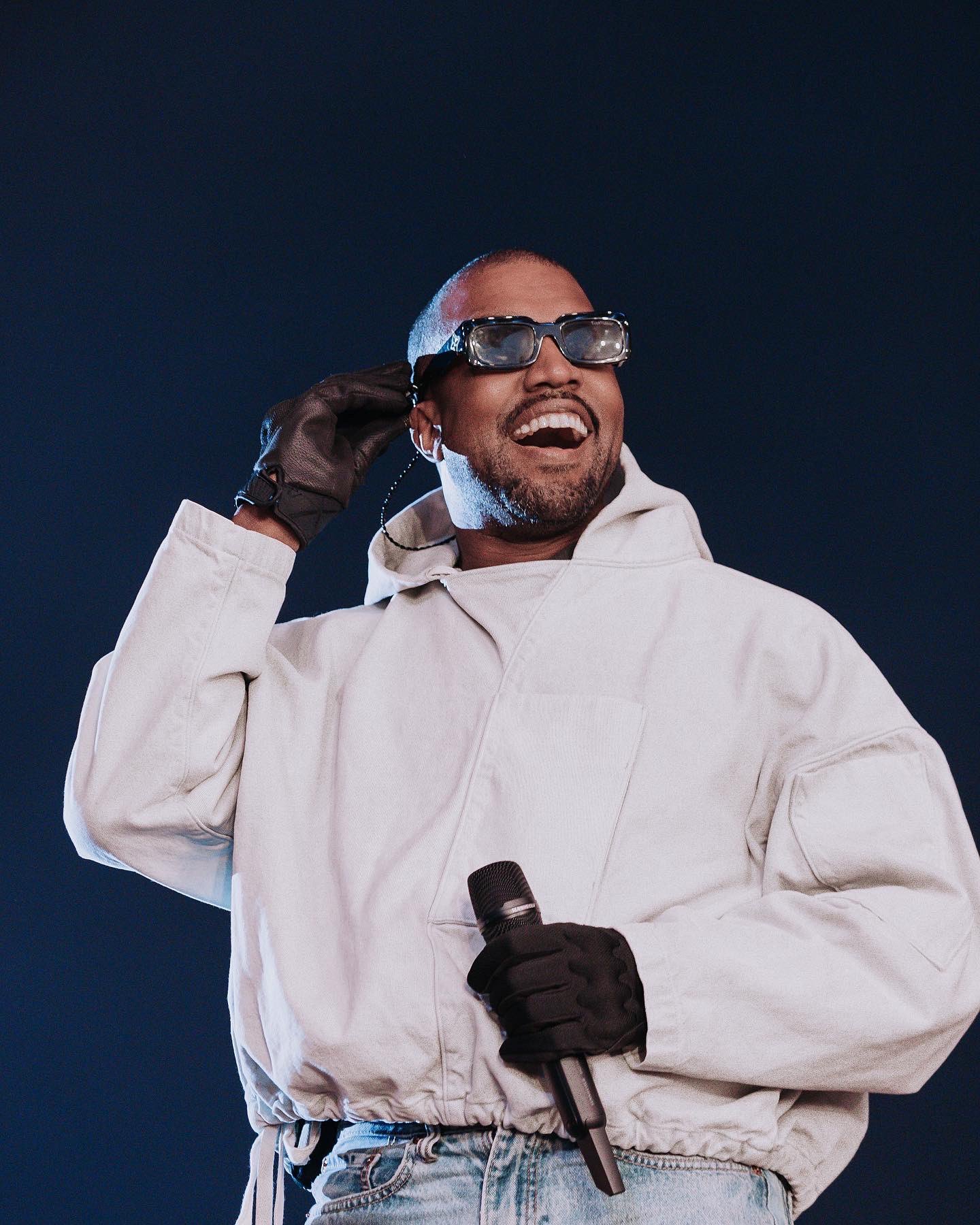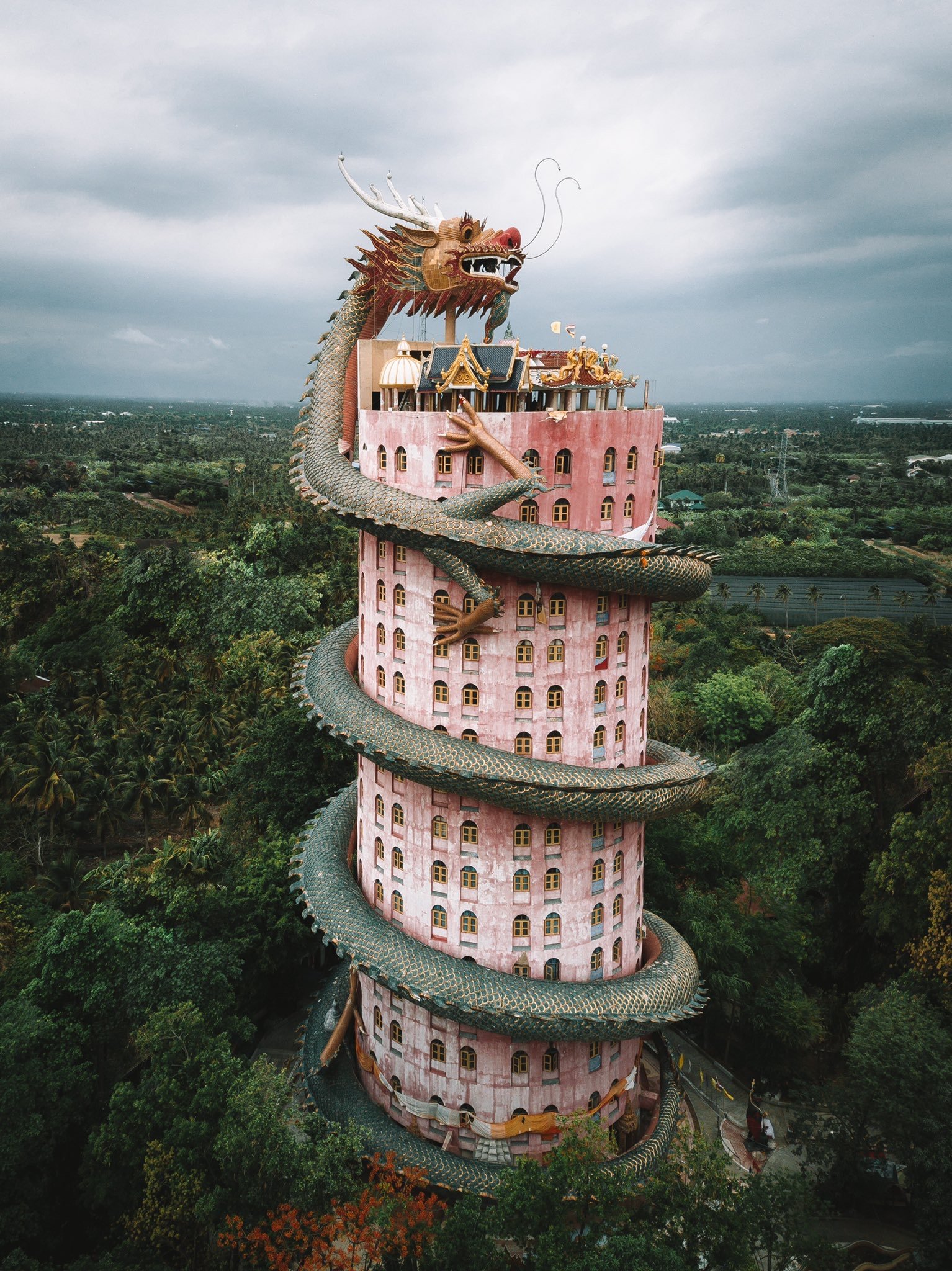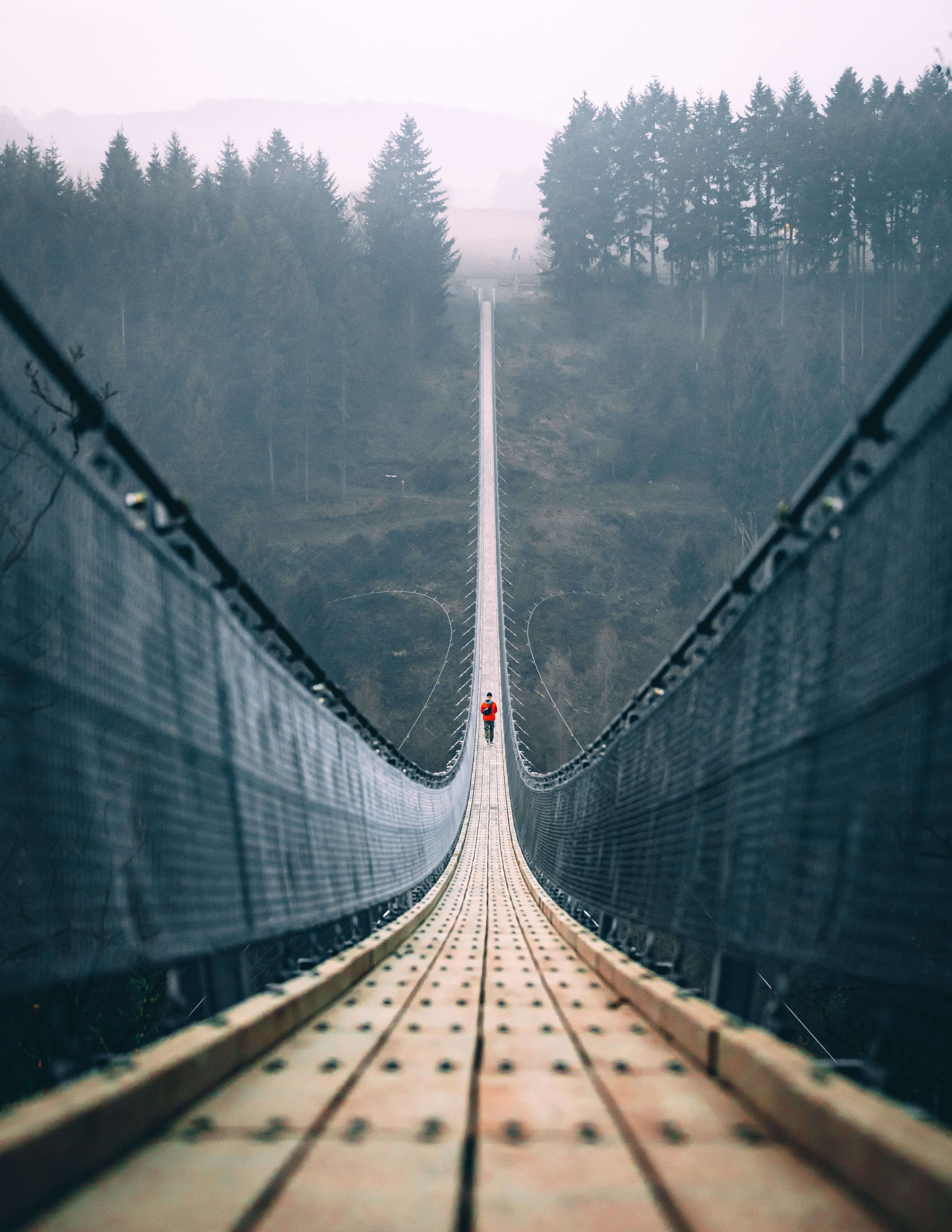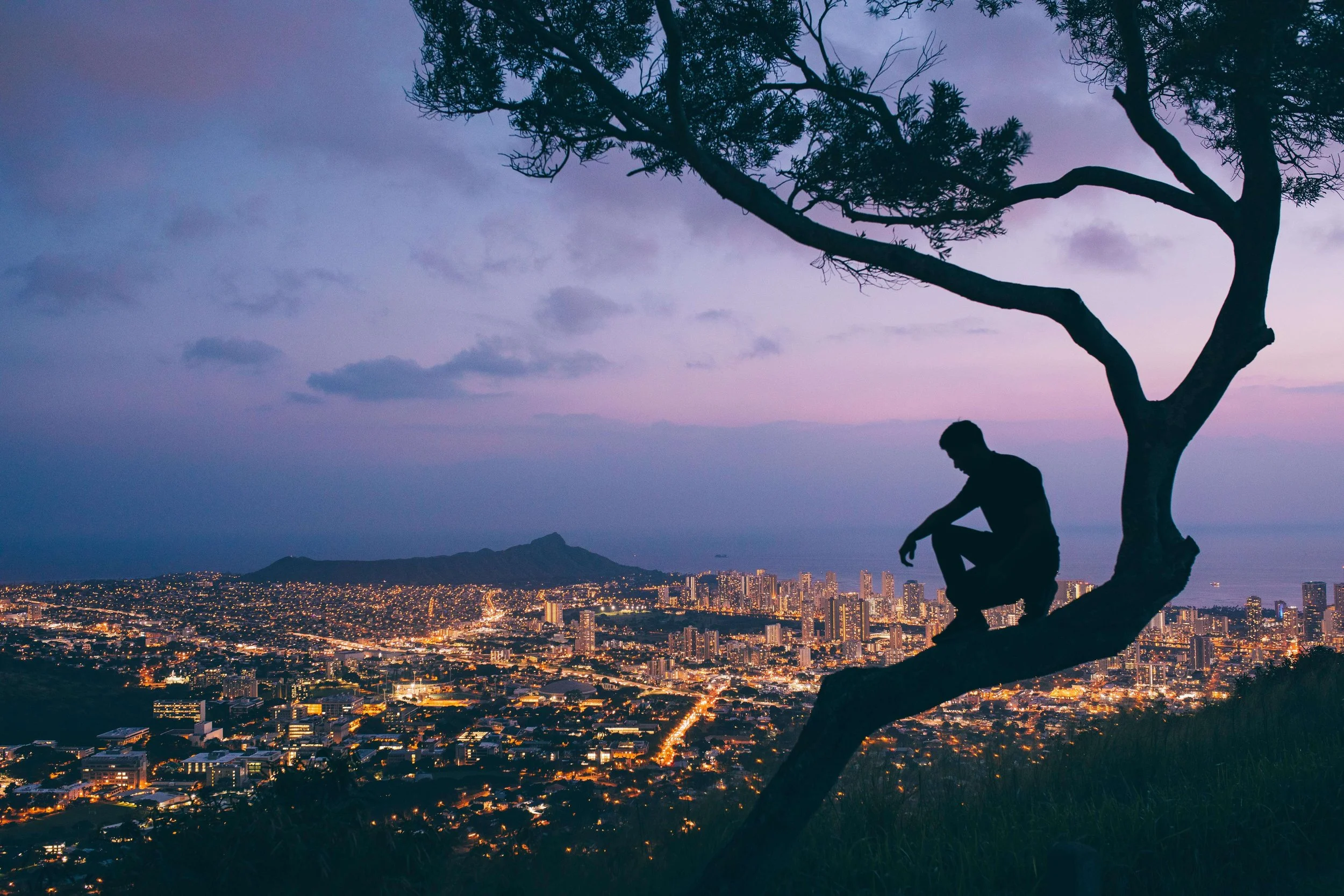Henry Hwu
Photographer Henry Hwu is a true success story. Not for the tens of thousands of followers, or his endless cache of globe-trotting escapades, or even his close-knit relationships with culture-defining festivals like Rolling Loud … but for his unwavering dedication to always pushing his limits. That, and the herculean feat of simultaneously maintaining a full-time job at Air Canada.
It might come a surprise given the visceral, exhilarating nature of much of his work, but the man behind the lens is soft-spoken, genuine and humble to a degree that would baffle most entertainment industry lackeys. Speaking with him, you almost need to pinch yourself to remember that this is the same person scaling impossibly high skyscrapers and dangling his legs precariously off the edge.
Since shooting his first show (Kehlani) way back in 2015, he’s been featured in Complex Magazine, released several immaculately-designed coffee-table books chock full of snaps from his latest adventures, and had some of the biggest artists in the world (Drake, Travis Scott, etc.) repost and share his concert shots, the holy grail for music photographers.
His most recent project, a collaboration with VFX artist Aaron Rolo, combines concert photography with music and visual effects, effectively bringing static images to life and transporting the viewer to a world of light shows, mosh pits, and sold-out arenas.
Check out some of Henry’s work below, and read on for the full interview, where we talk traveling around the world with Air Canada, the cultural significance of the world’s biggest hip-hop/rap festival, and what it feels like to have Drake, @champagnepapi himself, repost your photo.
I know you just got back from a Paris trip — how was it?
Amazing! I went with my girlfriend — it was my third time, but her first time. It was a good, relaxing trip, not a full-on photography trip this time around: half just showing her around and chilling and stuff like that.
Do you do full-on photography trips?
Oh yeah. My usual trip, when I'm shooting photos, is pretty crazy. Typically I wake up at 5 AM for sunrise, get breakfast, and then when the sun's bright and harsh is usually when I get my rest in. Then I go back out, prepare for sunset, and if I want any shots at night, I'll go out for that later on. It’s a totally different dynamic.
Tell me a little about how you got into photography in the first place.
So I started working for Air Canada back in 2013. Around that time, iPhone photography was really big on Instagram. Back then, it wasn't really about what you shot with, but more the fact that everyone was just going around and taking photos and sharing them … and it was all through your phone. It wasn’t as common, back then, to use DSLR cameras, especially if you were posting to Instagram. That whole scene really interested me.
When I started working for the airline, obviously it comes with some perks. [Laughs] Pretty quickly I discovered that, through the airline, I could travel anywhere in the world for pretty cheap. And after going to a few of these places, I thought, “I'm going all these places, but imagine if I could document it!” So I saved up for a camera, and the first one I bought was a Canon Rebel (probably a Rebel T3, not even a full frame sensor). I took that on a couple of my journeys, went to Japan, and started sharing my photos. Eventually, I upgraded to a [Canon] 6D, which was my first full frame camera. From there on out it was mostly just picking spots that were within Air Canada’s network and traveling.
Learning how to edit was all trial and error, but I was always posting my photos online. I started to gain a little bit of traction, gained some followers, put my work out there … everything happened organically. Social media is really wild — once you publish your work, it's out there for the world to see.
In terms of music, I’m a big hip-hop fan. I started shooting concerts in smaller venues, and I’m working my way up to getting into bigger festivals. These days I do a lot of work with Rolling Loud, which is one of the biggest hip-hop festivals in the world.
What was a turning point for you in terms of learning about the art of photography itself?
To this day, my passion is still is at the same level it was the first day … but obviously there've been some bumps and bruises. I think it's been consistent since the beginning, even though there was definitely a learning curve for me. Honestly, I want to tell everyone that everything is accessible these days. We shouldn't take that for granted. Everything that you need to know is on sites like YouTube or Skillshare. And usually, people are always more than happy to help and share their tips. It's just about how badly you want to learn it.
Were there any moments in your photography career, specifically, that felt groundbreaking?
On the Summer Sixteen Tour, it was Drake and Future. They were in Vancouver, and I remember getting a pass to shoot the show through a friend. I was flying to Hong Kong the day after the concert, but I posted a picture of Drake [on my Instagram] before I left. Posted the photo, flew to Honk Kong, and then I was on airplane mode when I arrived, struggling to find a WiFi. I hopped on the train after I landed, heading to my hotel, finally got WiFi there, and then suddenly I notice everyone tagging me … and it was on Drake's Instagram page. He had actually taken a screenshot of the photo I took, slapped a filter on it, and posted it to his own account. Obviously he didn't tag me, but everyone who followed both of us knew my stuff, so they figured it out. That was definitely the moment when I realized, “Holy crap, my work is out there and can be seen by literally anyone right now.” To this day, it’s cool for me. He still hasn’t deleted the photo, so it’s like a little stamp of history.
“As far as staying focused goes, it’s easy for me, just because when I'm there [at concerts], I’m in my element.”
You mentioned working with Rolling Loud, which is cool, because I feel like that festival more than any other really has a finger on the pulse of what's going on in hip-hop/rap. They’re great at finding and featuring underground and up-and-coming artists, and I love those giant gold pendants they give out. The one Rolling Loud I shot (SoCal December 2017), Kodak Black wore it throughout his entire set.
You’re right! They've been giving it to a lot of the artists. I also noticed that at the most recent one in Miami, they made a point to give it to the artists that were performing at Rolling Loud for the first time. So it's kind of like a sense of accomplishment as well.
I remember one of the first years they put on Rolling Loud, Spring 2017, sitting in my dorm room in college and actually watching a livestream as it was taking place down in Miami. We all saw Lil Uzi Vert dive like 30 feet off the top of a stage balcony, and then that clip just blew up on social media. After that, it was clear Rolling Loud was the place to be, the biggest thing happening in rap and hip-hop.
Anyway, when I met you, briefly [at Rolling Loud 2017 in San Bernardino, California] the first thing I noticed was how damn focused you were. In situations like that, where there’s so much going on, and sometimes multiple artists you have to shoot, and they might be performing simultaneously on different stages – how do you stay focused on the job at hand?
Well, I wouldn't say I'm always like that. I do sometimes get nervous before shooting. But it's hard to explain — it’s like the second the artist goes on stage, you’ve got your camera ready … everything’s alright. It's something that I really like doing, so it just flows naturally. And as all photographers know, when you're taking photos (or videos or whatever), you get that shot that you know is the One. It's a weird feeling but you know you got it without even looking through your pictures. That feeling is something that makes it all worth it.
As far as staying focused goes, it’s easy for me, just because when I'm there, I’m in my element.
They approved way too many photographers for that particular Rolling Loud we were both at, but I’ll never forget that blue, black, white North Face x Supreme ski jacket you wore … that sh*t stuck out like a sore thumb, in the best way possible. Do you have any other signature concert-photographer fits?
[Laughs] I usually try to stay dripped out, but recently I’ve been trying to wear more dark colors, or even all black, because that's the unofficial dress code for media people. Now that I have a bit more access shooting these festivals (whether I'm on stage or on the side) I try to keep it a little bit more low key.
There are a lot of different paths that photographers follow in this whole industry. Some people rock with artists, exclusively. Some people shoot for newspapers and magazines. Some people are nightlife/club photographers who end up shooting bigger festivals. I know you were originally shooting with smaller companies, like Blueprint Events, and then also getting some passes to shows on your own. What was the hardest part of that whole era of your career, and what did you learn from it?
The thing is, if you're doing travel photography, no one's gonna stop you from hopping on a plane and going somewhere new. But for concert photography, it’s different. The question I get asked the most is, “How do you get access to so-and-so festival? Like … how are you in the position you’re in? I want to be where you are!”
The single most important piece of advice I can give everyone is to start small. Reach out to your local venues, shoot anything and everything you can for the experience. No one's going to want to hire you or give you access if you don't have anything to back it up with, and it's hard to jump in right away anyway. So if you have any opportunity to shoot anyone, no matter who it is, take it. You can showcase your talent in order to get access to the bigger festivals. Email publicists, email labels, email management. There are so many different lanes you can use to get access to these festivals. The worst you're going to get is a ‘no.’ But it’s important to keep looking, and be willing to do that to get the access that you need to keep building your portfolio.
“I told myself I wanted to be as transparent as possible.
I wanted people to see what I do, and hopefully inspire them in the process.”
How did you transition from travel photography to concerts photography? What were the initial steps there?
I actually wouldn’t use the word ‘transition.’ Maybe, “introduce a new aspect of my photography,” because I still equally balance the two out. My niche is the mix of the two. As far as introducing that aspect, the first show I ever shot was actually a show I snuck my camera into. It was Kehlani, and she was in Vancouver at a small venue called the Alexander, which holds probably less than 150 people. I snuck my camera in and I was shooting the show from the top, and honestly I was so happy with the shots I got. Looking back now, they’re overexposed, shot in JPEG … things that I would never do again. But looking back shows the contrast between what I used to do, and what I do now. And the one thing that’s stayed the same is the passion — how happy I was and how much I enjoyed doing it. That hasn't changed at all, which is I guess, the most important thing about it all.
When I was doing research for this interview, I stumbled on your blog. The fact that you wrote about the experiences early on in your career really struck me, because I feel like a lot of online creatives (especially photographers and videographers) shy away from writing, or even expressing themselves at all beyond pop culture-referencing Instagram captions, and it leaves them pretty enigmatic, and much less relatable.
What made you want to start that blog in the first place?
I started it for me. I wanted to document my travels, but I also wanted to help people. When I started photography, I told myself I wanted to be as transparent as possible. I wanted people to see what I do, and hopefully inspire them in the process. But it’s important to stay transparent, because then people can relate to it. [It’s better to] be more approachable. Showing the bumps, and the downfalls, for those that actually take the time to read it, is really important to me. Nowadays it's kind of like a memory for me to look back on, but at the same time, for anyone who’s reading it, it’s also a behind the scenes of what I went through, how I felt, and everything in between. It really shows the progression.
You’ve been to a lot of concerts over the years. Any that stuck out to you, especially in terms of production?
Kanye West. Saint Pablo Tour. 100%.
Wow, no hesitation there.
It was so simple, but so well executed. The fact that anyone in the stadium could get the same experience, no matter where they were in the venue … it was crazy. He nailed it. Obviously I see his inspiration on artists like Travis Scott, especially the way he was moving around on the most recent Astroworld tour, when he was on the roller coaster that went through the arena. That they're thinking of ways to creatively engage anyone, no matter where they are in the arena, and pushing away from the traditional stage setup, that’s the best.
Tell me about the Portal To Our World project you’ve been working on.
So Aaron [Rolo], who's based in London, is an extremely talented artist. We wanted to create something mixed my photos with his video effects.
We were talking about doing something at Rolling Loud, but then that night, I shot the Travis Scott show, and I got some of the best photos ever taken of him, in my opinion. It was like six or seven in the morning, Aaron and I were chatting — I’d be sending him these photos, and he said, “I'm ready to create something crazy with these photos.” I'm very selective about who I work with, but he was one of those people. It was FaceTime calls back and forth every day — we didn't even care about the time zone difference. He picked a few of his favorites, we put ‘em all together in a Dropbox, and we kind of plotted how we wanted it to look. We knew we wanted to use a specific Travis Scott song called ‘Escape Plan’ — it's not released yet, but it's going to be on his upcoming album Utopia. We had a little vision, and [Aaron] brought my photos to life. It was insane. He killed that.
I was curious if someone at Travis’ camp hired you guys to create that.
No, it was all between us. Those are the projects that mean the most to me anyway, because it's organic and it's 100% between the creators that are working together.
What’s the split between you shooting concerts by yourself, doing creative projects by yourself, etc. … and labels, artists, or media companies reaching out to contract you for gigs?
Ever since I started photography, I’ve pushed myself to keep my passion separate from the work. I only take on projects that I really enjoy doing. So hip-hop photography ties in with festivals, and working with Rolling Loud — they're my favorite organization to work with. All the travel stuff I do is purely for myself. I rarely ever do things that aren’t aligned with what I represent, in a sense. I genuinely love hip-hop shows and festivals, and the ones I’ve been working with lately are great, so I probably won’t ever turn them down in terms of work. But because I have a full-time job on the side (as we explained before), financially it's okay for me to pick my events.
I’m all for being a full time creative, but I feel like it's a lot of stress and I really want to stick with what I enjoy doing. I don't want to ever let passion … fizz out, in a sense.
When you do want to shoot a festival, what’s your process for that? How do you get in?
So honestly, at the Rolling Loud ones, they have pretty much all of hip-hop and rap coming out. If I can shoot that a few times a year, then I'm happy. They’ve been sufficient enough for me to satisfy my photography hip-hop itch. [Laughs]
In terms of getting in contact with the right people, it used to be anyone I could contact. Nowadays, getting to know and meet a lot of the people within the industry … you realize a lot of them are interconnected. A lot of it is based more off word of mouth, trust, and reliability. Those things are super important within the live music industry.
What's your favorite place you’ve traveled to and why?
Dubai. And my favorite place I've shot in is Iceland. The reason I chose Iceland is because you feel so insignificant in the sense that, you realize how crazy nature is. There’s a road that goes all the way around Iceland and it's just amazing to see the different scenic routes, and all the nature that changes so quickly. Iceland blew me away, so much that I came back again a couple of years later. We went in the summer, which is interesting because they get 20 to 23 hours of sunlight then. The sun rises and sets within two hours, and it never really gets that dark.
My recommendation [as to what to check out there] would be the waterfalls. We went to one called Skógafoss that was amazing, but there’s a ton of other canyons and valleys to see as well.
What's a piece of gear that you can't live without?
My camera. [Laughs] For concert photography, I started using this star filter (that a lot of other people use as well), which is a filter you can put on top of your lens and it gives you a little star effect where lights become sparkly. I love just throwing it on. It's really fun to shoot artists with that because depending on how the light hits, you get a different end result every time. Plus, a lot of the artists wear chains, jewelry, or other really shiny things so when you're shooting them with that filter it makes it look all the more interesting.
I know you’re a big Logic fan, and that you were actually even featured on one of his album covers. In your blog you mentioned ‘Soul Food’ as one of his best tracks, but apart from that, what’s your favorite Logic song?
The first one that comes to my head is ‘Dead Presidents III,’ [from Young Sinatra: Undeniable]. He has so many good songs but that one is something else.
